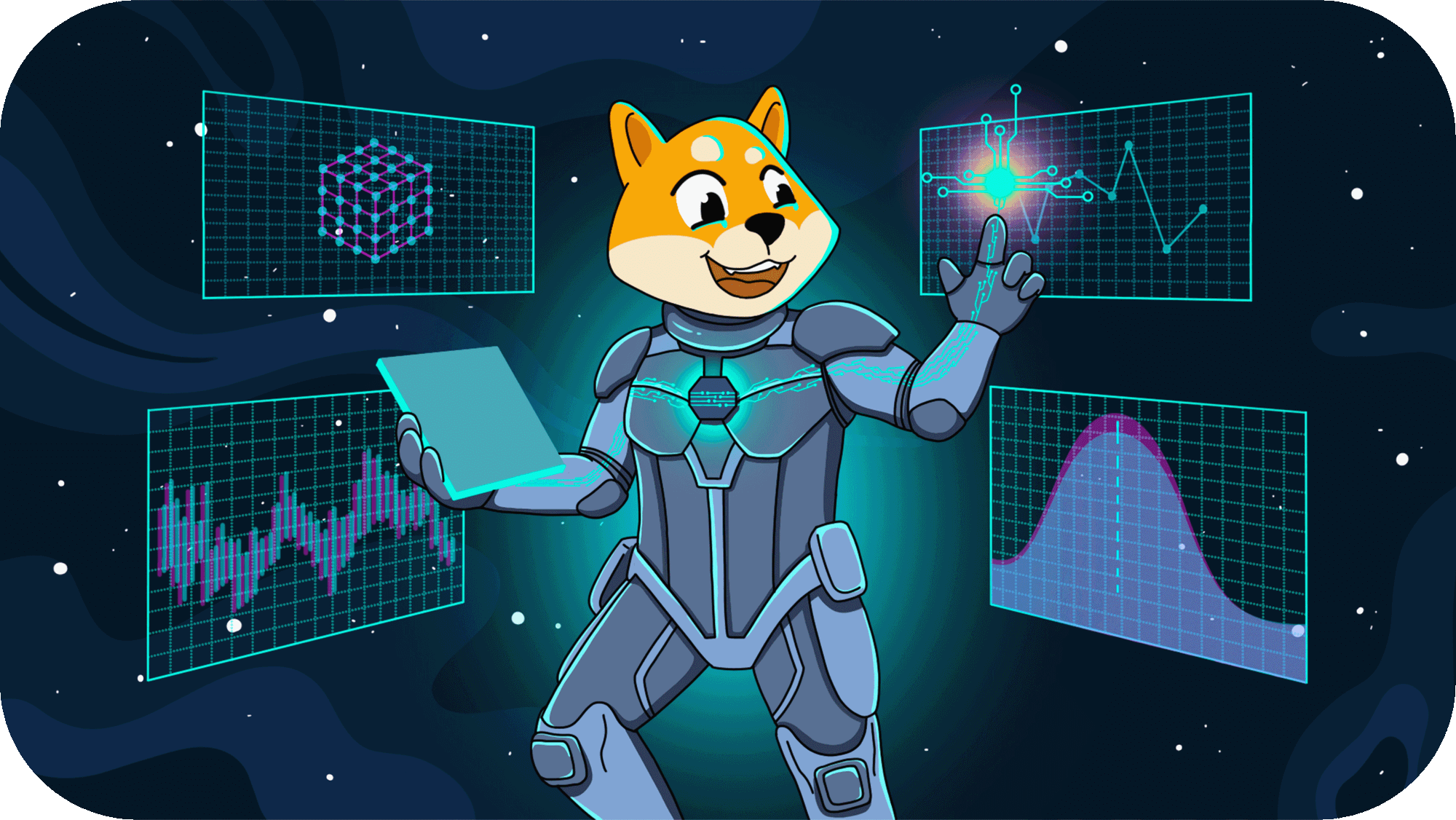0x12…qrst

Two partners have emerged as the stars of the tech world: Blockchain and Artificial Intelligence (AI). Individually, they are disruptive forces reshaping industries, but together, they form a dynamic duo that resolves to revolutionize the digital landscape.
The Intersection of AI and Blockchain
Imagine AI as the brainiac of the tech universe, making machines think, learn, and make decisions like never before. On the flip side, we have blockchain – the incorruptible superhero ledger that’s decentralizing power, enhancing transparency and ensuring data integrity.
A report made by Spherical Insights in 2021 shows that the global blockchain-AI market value is projected to reach $980.70 million by 2030.
Data Drama – Sharing and Security Unleashed
Blockchain takes center stage as the guardian of data integrity. It provides a robust, unchangeable source of information for AI applications, ensuring that the data fueling these intelligent systems is reliable and rock-solid.
Meanwhile, AI, the detective of the digital world, analyzes this data, providing insights and refining accuracy. Together, they form an unbeatable duo thwarting unauthorized access and manipulation while detecting anomalies and fraud.
Trust Issues? Not Anymore!
Enter the era of unshakeable trust! Blockchain’s immutability serves as the staunch foundation that AI can build upon. It becomes nearly impossible to manipulate, boosting confidence in AI systems.
As AI works its magic, automating and streamlining data management, the efficiency of both technologies reaches new heights. It is poised to operate on a trust-building, efficiency-boosting mechanism.
Autonomous Awesomeness
Picture a world where decentralization reigns supreme. Thanks to blockchain’s decentralized nature, AI systems gain autonomy like never before. No single server lords over all operations, creating a symphony of independent, intelligent actors working seamlessly together. It’s a tech dance party, and everyone’s invited!
Use Case Extravaganza: Where Magic Happens
1. Supply chain management: Blockchain can track the provenance and movement of goods across the supply chain, ensuring their authenticity and quality. AI can monitor the demand and supply of goods, predicting optimal inventory levels and delivery times. Blockchain can also enable smart contracts that automate payments and incentives, while AI can assist in dispute resolution.
A case study about the implications of AI and blockchain on supply chain management reports that a multinational electronics company can rely on AI to process large datasets in real time as well as on blockchain to ensure transparency, verification, and compliance with regulations.
2. Healthcare: Blockchain can store and share patient records, medical histories, test results, prescriptions, and more. AI can analyze this data and provide personalized diagnoses, treatments, and recommendations, improving patient outcomes and satisfaction. Blockchain can also enable smart contracts that facilitate insurance claims, payments, and donations, while AI can assist in research and development.
If you’ve ever heard of precision medicine, then you know that this, along with genomic data, can transform the way healthcare practitioners and institutions implement specialized treatment plans for each individual. This means no more one-size-fits-all for patients’ medical conditions.
3. Finance: Blockchain can facilitate peer-to-peer transactions, remittances, and crowdfunding, reducing fees and intermediaries. AI can analyze financial data, market trends, customer behavior, etc., providing insights and advice. Blockchain can also enable smart contracts that execute trades, loans, contracts, and similar transactions, while AI can assist in risk management and compliance.
Here’s an interesting application: Blockchain technologies that support AI could help financial instruments in reducing financial costs in the next five years. It is undoubtedly an investment and comes at a price, especially in the beginning stages, but the long-term effects can be transformative.
Two Are Better Than One
As blockchain and AI continue to evolve, they will create more opportunities for innovation and collaboration. They will also face challenges such as scalability, interoperability, regulation, ethics, and so much more. So, as we watch blockchain and AI dance across the tech stage, let’s applaud their synergy and anticipate the next show-stopping innovation they have in store for us.